Search
Search Results
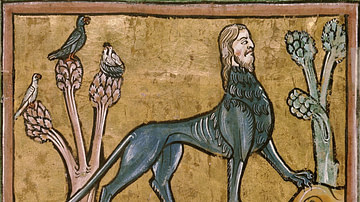
Definition
Manticore
The manticore, derived from the Early Middle Persian merthykhuwar or martiora, meaning "man-eater" (also known as a mantichora or a martichore), is a fearsome hybrid creature found in classical and medieval literature. It has the body of...

Definition
Vulcan
Vulcan or Volcanus was the Roman god of fire and forge, the equivalent of Hephaestus from Greek mythology. The son of Jupiter and Juno, he was the special patron of blacksmiths and artisans. As the god of the forge and the devastating fire...

Definition
Ancient Israelite Art
Ancient Israelite art traditions are evident especially on stamps seals, ivories from Samaria, and carvings, each with motifs connecting it to more general artistic traditions throughout the Levant. Ancient Israel, and therefore its art...
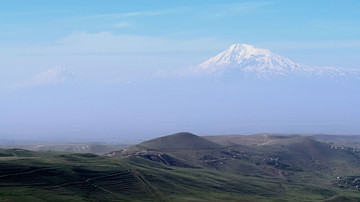
Definition
Mount Ararat
Mount Ararat (Armenian: Masis; Turkish: Ağrı Dağı; Kurdish: Çiyaye Agiri; Azeri: Ağrıdağ; Persian: Kūh-e Nūḥ) is a dormant, compound volcanic mountain, consisting of two ancient volcanic peaks, located in present-day eastern Turkey very close...
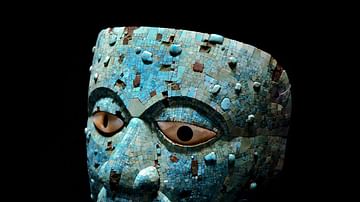
Definition
Xiuhtecuhtli - The Aztec God of Fire
Xiuhtecuhtli or 'Turquoise Lord' was the Aztec god of fire and also closely associated with young warriors and rulers. To the Maya he was known as Chac Xiutei. Xiuhtecuhtli was the patron of the day Atl (water) and the trecena period 1 Coatl...
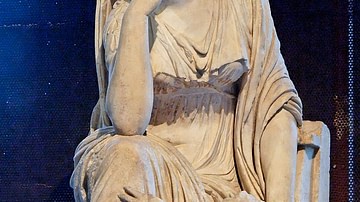
Definition
Thetis
Thetis is one of 50 Nereids (sea nymphs) and a goddess of the sea in Greek mythology. Thetis is best known for being the mother of the Greek hero Achilles, however, her role goes beyond that; she appears in various stories and interacts with...

Definition
Book of Revelation
The book of Revelation or the Apocalypse of John of Patmos is one of the most famous books in the New Testament. Written near the end of the 1st century CE, it is the only apokalypsis (Greek: "unveiling of unseen realities") that was included...
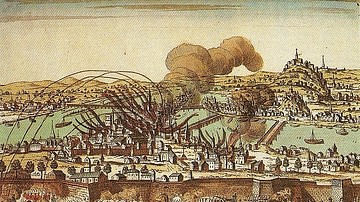
Definition
Revolt of Lyon
The Revolt of Lyon against the rule of the National Convention was a counter-revolutionary rebellion that played a role in both the Federalist Revolts and the Reign of Terror during the period of the French Revolution (1789-1799). Beginning...
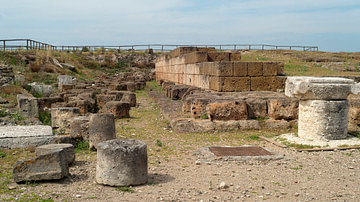
Definition
Vulci
Vulci (Velch) was an Etruscan city located 12 km from the western coast of central Italy by the banks of the Fiora River. Flourishing as a trading port between the 6th and 4th century BCE, it was an important member of the Etruscan League...

Image
Acroterion Statue of Typhon
Terracotta acroterion statue of Typhon, the "Father of All Monsters". From Gabii, Italy, 6th century BCE. Typhon was the most powerful of all Greek monsters. He was a winged giant with the head, arms, and torso of a man, had pointed ears...